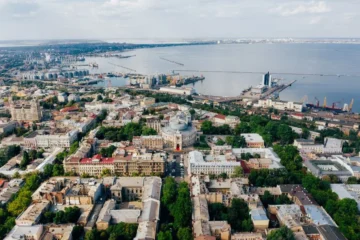Mauritius is a small island nation with an open economy, a relatively welcoming immigration framework, and deliberate pathways for attracting skilled workers and investors. For many foreigners, the logical first step is an employment-based permit, yet not every work route leads to permanent settlement. In practice, several Mauritius permits combine work and residence, and these can form the basis for a later application for permanent residence, provided the applicant meets the legal residence, income, and other conditions set by the authorities.
Key Takeaways
How Mauritius handles work and residence
Mauritius does not separate work authorization and long-stay residence in the same way some countries do. The Occupation Permit is a single combined document that both authorizes employment and permits residence, and it is issued in three main categories: investor, professional, and self-employed.
The government also issues ordinary residence permits for employment, while some short-term arrangements, such as seasonal work or visitor visas, are explicitly temporary. In addition, Mauritius introduced a Premium Visa for long-stay visitors and remote workers; this visa is primarily for extended stays and remote work, and it is not designed as an automatic route to permanent residence.
Also Read: How to Get Permanent Residency in Mauritius
Which permits realistically lead to permanent residence
The Occupation Permit is the most relevant permit for workers aiming at long-term settlement, because it already grants lawful residence while at the same time allowing the holder to work. Holders of Occupation Permits, and in some cases those who held valid work permits, may become eligible to apply for a national Permanent Residence Permit, subject to meeting the statutory residence and financial conditions.
There are also investor and property-related residence schemes that can offer faster access to long-term status, but these involve specific investment thresholds and qualifying criteria. The Passport and Immigration Office is the principal authority overseeing residence permits, while work permit administration involves coordination with the Ministry of Labour and related e-Work portals.
Eligibility basics for work-based residence
Eligibility for an Occupation Permit or a residence permit for employment depends on the chosen category. For professionals, applicants typically need a binding job offer and proof of qualifications; self-employed applicants must demonstrate viable business activity and investment; investors must meet the capital requirement for the investor stream. All applicants must satisfy routine immigration checks, such as health screening and clear criminal records. The Premium Visa is open to remote workers, retirees, and long-stay visitors who can demonstrate sufficient income to support themselves during their stay; it is easier to obtain than a full work-based residence permit, but it is not equivalent to permanent residency.
How a work permit can become permanent residence
There are two concepts to separate. One is the national Permanent Residence Permit, which is granted under domestic law to third-country nationals who meet specified residence and other conditions. The other is a shorter-term residence that must be renewed.

Guidance published by the authorities and official compilations of rules indicate that holders of an Occupation Permit or a valid work-based residence permit can apply for certain categories of permanent residence after meeting continuous residence and threshold requirements; the rules and qualifying periods have evolved, and some older transitional provisions also exist for persons who held specific permits before recent changes.
Investor pathways and property-related schemes provide alternative routes to long-term status for those who meet the financial criteria. Always consult the official guidance before planning.
Typical timeframes and realistic expectations
Timeframes vary according to the route. For most employment-related applicants, the qualifying period before eligibility to seek national permanent residence ranges from a few years of continuous lawful residence to longer periods in some cases, particularly if the applicant relies on general naturalisation channels rather than investor schemes.
Some official guidance and independent summaries refer to three years for certain categories where transitional rules apply, while other routes, especially naturalisation, can require five years or more of lawful residence.
Processing for a permanent residence application itself may take several months, depending on document complexity and checks. Because rules and thresholds change from time to time, planning conservatively and keeping documentation of continuous lawful residence and employment is essential.
Application process and key authorities
Work-based residence applications are typically initiated by the employer or by the applicant through the e-Work Permit portal for employment authorizations, while the Passport and Immigration Office issues residence permits and finalizes long-stay documentation.
Also Read: Are You at Risk of Being Denied French Citizenship Under the New Immigration Laws?
Applicants should gather employment contracts, proof of qualifications, tax and social security records where available, police certificates, and health screening results. For permanent residence, the prescribed forms and supporting documents must be submitted to the Passport and Immigration Office according to the latest procedural rules, and applicants should follow any updated checklists published on the government site.
Common challenges and mistakes
A frequent mistake is assuming short-stay visas or the Premium Visa are equivalent to long-term residence. Another common error is failing to maintain continuous lawful residence while changing employers or permit categories; gaps or working without the correct permit can disqualify an applicant.
Policy adjustments and tightening of criteria occasionally occur, so relying on old advice can lead to surprises. Applicants should also be careful when relying on investor or property routes, because minimum investment requirements, checks, and possible mid-term reviews may apply. Using professional immigration assistance and checking the Passport and Immigration Office notices can reduce risks.
Benefits of obtaining permanent residence via employment
Securing permanent residence in Mauritius provides legal certainty to live and work without repeated permit renewals, increases the ability to sponsor family members under the local family reunification rules, and simplifies long-term financial and property planning.
For investors and those on specific long-term schemes, permanent residence also reduces administrative friction and can facilitate wider business and personal planning in the Indian Ocean region. It is important to note that permanent residence is distinct from citizenship, and naturalisation has its own separate requirements and timelines.
Conclusion
Yes, it is possible to obtain permanent residence in Mauritius after arriving on an employment-based permit, but the outcome depends on the exact permit held, the length and continuity of lawful residence, and whether the applicant meets the current income or investment thresholds required for the chosen route.
The Occupation Permit remains the most direct and commonly used bridge between work and long-term residence, while investor and property routes present alternative, faster options for those who qualify.
Because Mauritian rules and schemes are periodically updated, applicants should consult official sources such as the Passport and Immigration Office and the e-Work Permit portal, and consider professional advice tailored to their circumstances.
Reference: https://residency.mu/live/permanent-residence-permit-prp/





